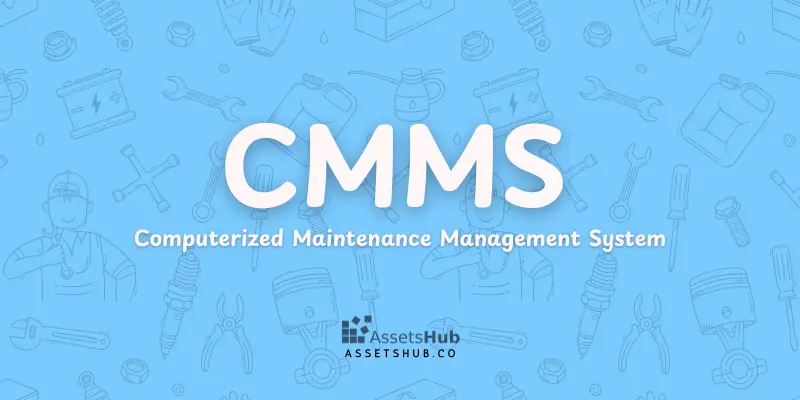What is CMMS, and How do you make a great use of it?
15 أبريل, 2025 · min read

What is CMMS?
CMMS is a term that refers to Computerized Maintenance Management System. The main purpose for it is to help organizations and maintenance teams to keep their maintenance operations organized, documented, maintained, and well measured. By making a great use of the technology revolution and artificial intelligence applications.
According to Wikipedia [1]:
A computerized maintenance management system (CMMS) is any software package that maintains a computer database of information about an organization's maintenance operations.
CMMS have evolved over time
from a simple asset tracking and preventive maintenance tools, to enterprise maintenance
information systems, that can revolute your maintenance operations, depends on the picked system.
Who Uses a CMMS?
Basically, the main audience for any CMMS is the maintenance teams, including the maintenance managers, engineers, and technicians. But by the advanced tools that some vendors offers, there are more stack holders who can be involved in using the software, for example, if the picked software includes an inventory management solution, the quartermaster can be involved. Also, if the software provides an advanced dashboard and reporting system, the top-level administration can also be involved.
The Maintenance Technicians & Engineers.
The Director of Maintenance.
The IT Manager.
The Chief Financial Officer.
The Warehouse Manager
Core Features of a CMMS.
As mentioned, there are a lot of vendors who build & develop epic systems that help you to computerizing your maintenance operations. Mentioning this takes us to show the core features of any CMMS.
So to speak, any average CMMS should at least include the following features:
Work Orders Management Module
Asset Management Module
Preventive Maintenance Scheduling Module
Inventory/Spare Parts Tracking Module
Vendor/Contractor Management
Reporting & Analytics
Mobile Access for Technicians
In general, nowadays, there are hundreds of add-ons that are mainly aimed at facilitating the use of the system. Examples include, but are not limited to, barcode scanning capabilities, 3D visualization of buildings and spaces, and artificial intelligence applications for proposing initial troubleshooting solutions based on equipment catalogs provided by the manufacturer.
Industries That Benefit from CMMS.
What industries that benefit from CMMS? Well, generally any industry that has a maintenance operations can make benefits from a CMMS. However, there are some special industries that need some kind of special CMMS features. So we can say that any organization can benefit from a CMMS, but not all CMMS can fit any kind of organization. But for example, the industries that can make a benefit from CMMS:
Manufacturing
Healthcare
Hospitality
Building maintenance
Oil & Gas
Facilities management
Farming
Government / Utilities
Key benefits and functions of CMMS.
So, what are the key benefits of applying CMMS in my organization? What are the benefits for me as an engineer or a maintenance team?
Organizing work orders and preventive maintenance
Preparing asset and performance reports
Managing assets and inventory
Advantages of a computerized maintenance management system (CMMS):
Monitoring and controlling costs
Reducing downtime
Increasing efficiency
Centralizing information
Improving health and safety
Monitoring and controlling costs
Does your organization need a CMMS?
Here we come, the most important question to be asked. Does really your organization need a CMMS? There are hundreds of bad CMSM implementations just because the bad timing of taking a decision of buying a CMMS, or because of the bad practices when the organization decided to buy a CMMS.
If you are considering taking on a
maintenance management implementation, first identify the goals and vision of the maintenance
department.
If you just want a list of assets and parts for accounting, CMMS is overkill. On the other hand, if your goal
is to reduce unproductive time spent going through filing cabinets trying to answer questions like:
When was the last time we worked on this asset? And what was the problem?
Where did we buy this part last time? Who has their phone number?
Is there a substitute part in the storeroom? Where is it?
Is this equipment under warranty? Have we performed the required warranty maintenance task?
How much have all the repairs on this asset cost? Should we replace it?
When was the last time a part was used? Is it obsolete?
What did we spend on preventive maintenance last year? Reactive?
If those questions sound familiar, you probably could benefit from a CMMS.
Resources:
[1] Wikipedia
[2] The role of CMMS by Mike Crain
